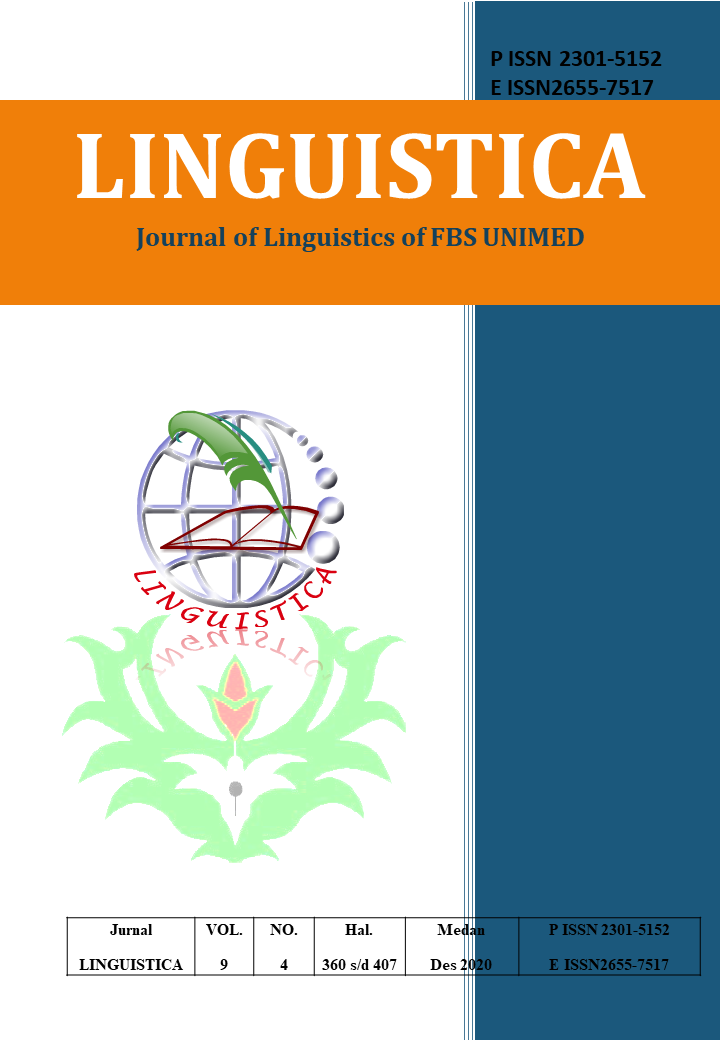WOMAN STRUGGLE IN PAULO COELHO™S THE SPY
DOI:
https://doi.org/10.24114/jalu.v9i4.21710Abstract
This study discussed woman struggle in Paulo Coelho™s The Spy. The objectives were to find out the kinds of woman™s struggle in Novel The Spy, the ways the main character struggles to fulfill her needs, and the reasons why the main character struggle in the way she did. This study used descriptive qualitative method. This study used Maslow (1987) theory to analyze the kinds of woman™s struggle and the ways the main character struggles to fulfill her needs that she had faced and elaborated the reasons by using theory of ambition. The result of this study can be concluded in some aspects. First, the kinds of woman™s struggle found in Novel The Spy in fulfilling the human needs, namely: Struggle for Survival, Struggle to Reach the Dream, Struggle for Love & Relationship, Struggle in Getting A Good Reputation and Struggle to be Independent Woman. Second, the ways the main character struggles to fulfilling her needs are exchange sex with favors and money, making relations with men from the higher classes and to be a Spy. Third, the reasons why the main character struggle are because of her ambition to become a Free Woman and influenced by author™s background.Downloads
Published
2021-01-07
Issue
Section
Articles
License
Copyright (c) 2021 EKA NOVIYANTI, AMRIN SARAGIH, MUHAMMAD NATSIR

This work is licensed under a Creative Commons Attribution-ShareAlike 4.0 International License.
Authors who publish with this journal agree to the following terms:
- Authors retain copyright and grant the journal the right of first publication with the work simultaneously licensed under a Creative Commons Attribution License that allows others to share the work with an acknowledgment of the work's authorship and initial publication in this journal.
- Authors are able to enter into separate, additional contractual arrangements for the non-exclusive distribution of the journal's published version of the work (e.g., post it to an institutional repository or publish it in a book), with an acknowledgment of its initial publication in this journal.
- Authors are permitted and encouraged to post their work online (e.g., in institutional repositories or on their website) prior to and during the submission process, as it can lead to productive exchanges, as well as earlier and greater citation of published work (See The Effect of Open Access).
- This work is licensed under a Creative Commons Attribution-ShareAlike 4.0 International License.

